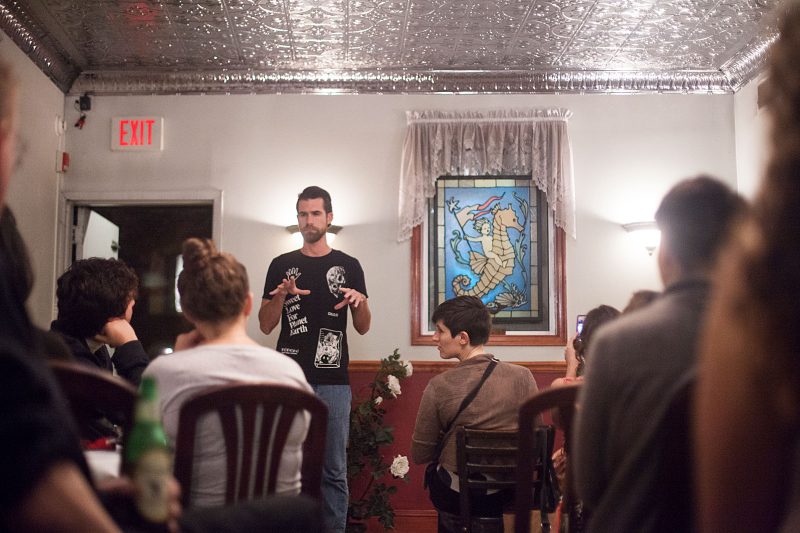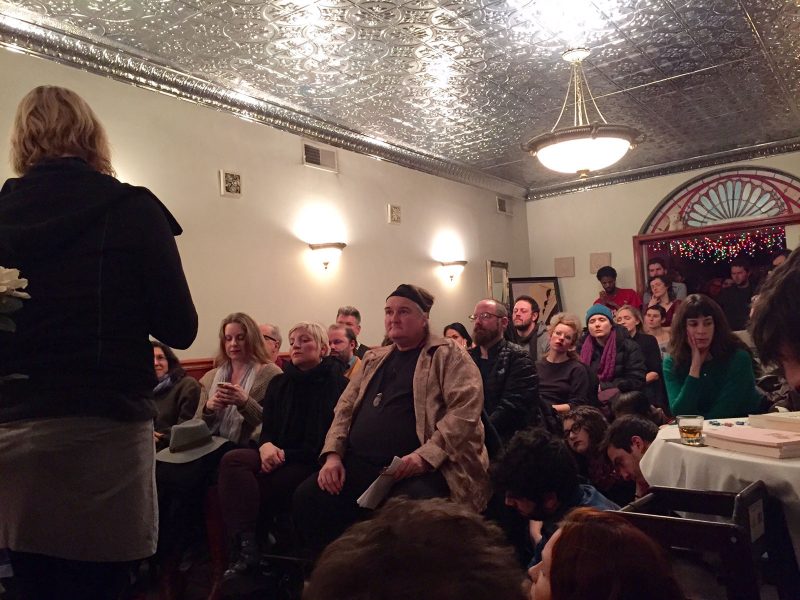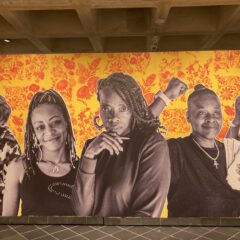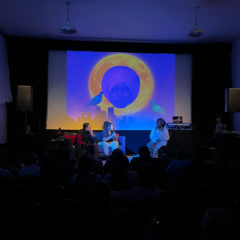When Jason Mitchell**** returned to Philadelphia in 2013, following his MA in Poetry at the University of Maine, he knew he would start a reading series. I remember walking with him through the streets of West Philly, comparing notes, influences, enthusiasms and sharing stories on our way to hear Chilean poet Carlos Soto Roman. Soon, Mitchell began hosting the Frank O’hara’s Last Lover series in the Rose Room at the back of Snockey’s, his family’s restaurant. Now in its fifth year, the series lifts younger readers into relation with more established readers, and combines traveling poets with hometown heroes. A staple of poetry life in Philadelphia, it’s a dynamic force for growing relationships and cross-pollination of influences. Each reading is watched over by a stained glass panel of a cherub riding a seahorse — a holdover from the original location, which has become a kind of emblem of the series.


Levi Bentley: How did Frank O’Hara’s Last Lover start?
Jason Mitchell: The first reading took place in the Rose Room at Snockey’s on April 13th, 2013, so the series has been running for five years. In that time, there’ve been 47 readings. The restaurant closed after Thanksgiving of 2015. The last reading at Snockey’s was a Tripwire** celebration that January.
LB: How would you describe the aesthetic or mission of the series?
JM: I had some things on my mind when I started the series in terms of an aesthetic (which I wrote about in an essay called “Sweet Especial Scene,” that came out in the Philadelphia-based magazine Supplement), but mostly I wanted to create interesting line-ups with poets I admired.
I had Stefanie Young & Juliana Spahr’s essay, “Numbers Trouble,”*** on my mind, too, and so at the start I tried to feature women twice as often as men. The numbers hold up pretty easily through the first two years, and even now, after five years, women have been featured more often than men at a rate of three to two. My inclination, I think, was on-point, if a bit naive, but the larger idea of inclusion and balance has stayed with me. Coincidentally, nearly a third of the poets who’ve read in the series have been from the San Francisco Bay Area, where Stefanie and Juliana call home.
LB: How did the series move to its current location?
JM: There’d been an article on the series and about Snockey’s closing in The Philadelphia Inquirer. The owner of Sam’s Morning Glory Diner, Carol Mickey, happened to see it. She approached me while my fiance Marta and I were eating breakfast (at Sam’s Morning Glory) and asked about it. Twenty minutes later she gave me a key to the place, and said “just leave it the way you found it.” That’s when readings started taking place at the Morning Glory — a few months after Snockey’s closed.
LB: What’s been the best part of organizing the series?
JM: I’ve made some really good friends along the way. The thrill of the actual event is fun. But mostly it’s been the chance to contribute to a community that I love, to help give Philadelphia a thriving, vital poetry scene. Both organizing the series and writing are components of my life in poetry, and so they share a lot of parallels. I think series organizers — like Christy Davids, Gina Myers, yourself, and others — deserve more credit for the amount of creative energy they pour into organizing that might have otherwise been used for their own writing.
LB: What’s next for the series? How can people find out about future readings?
JM: In 2019, an event I’ve been planning for over two years will feature a production of a little known John Wieners play, as well as a reading by Wieners’ longtime friend, Boston poet Jim Dunn. Sometimes ideas take years to come to fruition.
*** “Numbers Trouble” is an essay detailing the continuing issue of unequal representation of women in publication and professionalized poetry spaces.
** “Tripwire” is a Journal of Poetics, much lauded for its fostering of experimental approaches.
* John Weiners (1934-2002) was a Beat poet and antiwar and gay rights activist.
**** JASON MITCHELL is the host and coordinator of the Philadelphia reading series Frank O’Hara’s Last Lover. His writing can be found in Hi Zero, Court Green, Jacket 2, and Stolen Island among others.
***** “The name [of the reading series, Frank O’Hara’s Last Lover,] came from a class Mitchell took on Frank O’Hara, a 20th century writer, poet and art critic, while studying for his master’s at the University of Maine. Mitchell happens to share initials with O’Hara’s boyfriend, J.J. Mitchell.” (excerpted from Philadelphia Inquirer article by Molly Eichel, 2015)









